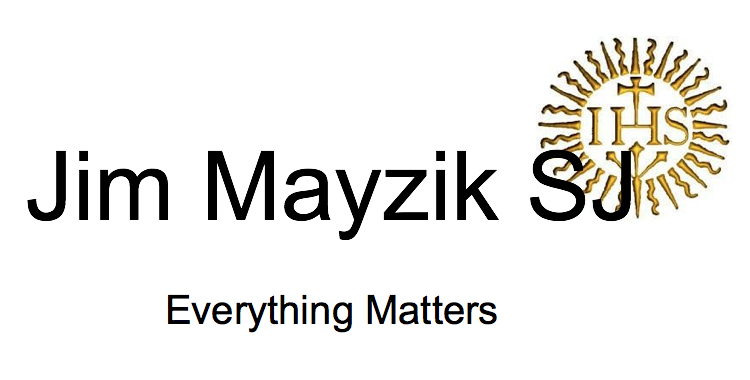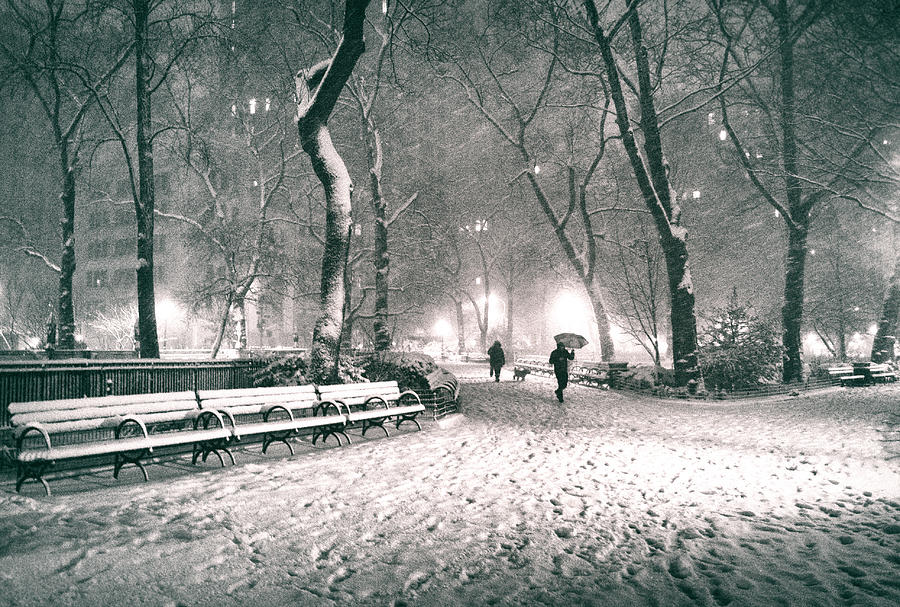Rejoice.
When you are young and healthy and the future lays before you like a golden road of adventure and opportunity, you don't think much about obstacles or potential problems or calamities that might come your way. You are hopeful when you're young, you are hope-filled, time seems endless and you feel immortal, and there is so much to do with your life at times you just don't even know where to begin. And of course, there is the prospect of love, the great soaring love of your life, and the one who will fulfill it is perhaps the greatest of all your hopes.
But when you get old, the days are a lot shorter, the nights a lot longer, and there is a sense of the finite and finality. You get worn down a bit over time, and there is the growing dominance of gravity upon your body, and all the parts don't work as well as they used to. When the years start taking their toll—aches and pains and infirmities—you warn young people, you tell them, as my mama used to say, "Whatever you do, don't get old" . And the toll sometimes is not just on the body: sometimes the years wear down your very soul, and the deepest of pain comes with the loss of the love of your life: your husband, your wife, friends, family, even children.
And at such times you feel that there is not so much to do with your life anymore, it is not a question of where to begin but a question of where does it end, and you find yourself saying "What am I to do, what am I to do?"
That's where Eleanor was in her life, right at that very question. "What am I to do, what am I to do?" The love of her life was gone, she was a widow of 8 years, and she had no children. She had been retired for even longer, more than a decade, as an executive secretary at a very prestigious firm, back when white-out and carbon paper and IBM Selectrics were standard office equipment. And of course, she wasn't as agile as she once was, had arthritis in her knees and fingers, and aspirin gave her only a little relief.
She lived in a one bedroom apartment in the city, in a building that had been brand new with her marriage, and had weathered the years together with it. Her days were filled with routine non-events, the greatest of which was a trip to the supermarket, if she felt up to it and had need or the desire.
On this one December day, late in the afternoon, though the skies were threatening and the windchill was near freezing, Eleanor decided to go to the store. She had no milk and no eggs, and very little Chock Full of Nuts coffee, and if as predicted, snow was to come, she wanted to have the essentials at home. So she bundled herself up, and went out into the cold afternoon. It was one of those days when the wind just went right through you, no matter what you wore, and when she got into the store, she was grateful for the warm blast of heat coming from the ceiling.
She did her shopping, carefully checking the prices and her coupons as she always did, and went to the register to pay. She helped the checker to pack, mostly because she had her own way of packing, and as she was packing the last item, a can of tunafish, it dropped out of her hand, fell to the floor and rolled over towards the front of the store, right to the feet of a young woman who was sitting on a sill by the window. The young woman picked up the can, got up and brought it over to Eleanor, who was grateful for this act of kindness since the arthritis in her knees made if difficult to bend over. As Eleanor thanked her, the girl briefly glanced at her and smiled, but then quickly turned away.
Eleanor thought she saw something in her face, and when she had paid the cashier and began to leave, she went over to the young woman who was still sitting on the sill, her head down.
"Excuse me," Eleanor said.
The girl's face came up. She looked about 16 or 17 to Eleanor, and she looked as though she had been crying.
"Are you all right?" Eleanor asked.
"Yes," said the girl, but it was clear that she was not.
"Are you sure?", Eleanor asked again. A tear rolled down the girl's face. She didn't answer.
Eleanor tried again. "What's the matter, dear?"
The girl looked at her, and then at the floor, and finally said, in a very soft voice, "I can't go home. I had a fight with my parents and they told me not to come home."
There was something about the girl that tugged at Eleanor's heart, something perhaps that reminded her of herself when life was still endlessly stretching before her.
"But what will you do? You can't stay here?" Eleanor asked.
That provoked a few more silent tears to fall down her young cheeks, and although Eleanor was a cautious woman to say the least, she said something that even surprised herself.
"You must come stay with me tonight. There's a storm coming, and you can't be out in it, and tomorrow you can work things out with your parents." And although the girl declined her invitation several times, Eleanor was insistent, and finally, and reluctantly, the girl agreed.
"But you don't even know me," she said. And Eleanor said that was quite all right, perhaps it was better that she didn't, and that in the morning she would have to leave and reconcile with her parents about whatever it was they had disagreed.
And the girl said her name was Elizabeth, but that she was called Beth for short.
At the apartment Eleanor made Beth some dinner. They talked for a little bit about the weather, about other small things, never once mentioning the problem Beth had with her parents. Eleanor made up her own bed for the girl, who looked exhausted, and she out a pillow and a blanket for herself on the couch in the living room. Beth was asleep almost as soon as she hit the pillow, and Eleanor looked in on her, wondering what it was that had brought so much grief to her young life. She went to bed on the couch, but couldn't fall off to sleep, her mind too worried about the young woman she was caring for in the night.
Outside, the storm had arrived, a real blizzard, snow swirling and blown every which way by strong winds, and Eleanor was happy to be inside and to have saved Beth from what was outside. She finally drifted off to sleep, but awoke—startled—to the sound of cries and moans coming from the bedroom. She got up, looked in, and found Beth half sitting up in bed. There was a large stain on the sheets, and Beth had her hands on her stomach.
"My water broke," she said, and for a moment Eleanor just looked at her, uncomprehending, until suddenly it dawned on her that Beth was having a baby.
"Oh, dear child," she said, "we have to get help," and immediately she reached for the phone to call for an ambulance. But all she could get was a busy tone, no matter what she dialed.
And that's when Beth said, "I think it's coming."
And sure enough, something was coming, a baby, right out of Beth as she sat in Eleanor's bed, and Eleanor leapt over to the bed to help her with the child. He came out so fast, it was hard to believe it was happening before their eyes, and Eleanor did what she thought needed to be done. She cleared out his mouth, and he began to cough and breath and cry. She found a scissors by the bed that she used for sewing, and cut his umbilical cord. She got lots of clean towels and warm water and cleaned the baby up, and his mother too.
It was quite an adventure. When it was all over, mother and child laid there in Eleanor's bedroom, sleeping. It was, well, a wonderful sight. The mother was radiant, although exhausted, and the baby was as fresh and beautiful and pure as anything that comes right from God.
Hours later, the parents came and took their child and new grandson home, and it seemed that a newborn baby had reconciled his mother with her own parents.
The snowstorm had ended, and the city had awoken to a white blanket of pure snow everywhere. From the window of her apartment, trees were dressed with elaborate garments of white, streets and sidewalks unrecognizable and, temporarily, at least, untrampled.
Eleanor was exhausted but exultant, more joyous than she had ever remembered being, even as a child. She put on her long fur coat, a scarf, hat and gloves, and went out into the snow-dipped world. She walked down the middle of the streets, which, but for an occasional car, were empty. She felt no pains from her arthritis, and her limbs seemed as agile as when she was young. And as she walked the streets of the city, to everyone she saw, she said one word. "Rejoice."
Just that. "Rejoice". She didn't care if they thought she was crazy. There had been a birth, new life had come into the world, and the only thing one could do was to rejoice. "Rejoice", Eleanor said, to every one she met. And the question that had weighed on her for so long had new meaning. From that moment on, she knew what it was that she was to do with her life. "Rejoice".
And Advent had come into her life.



